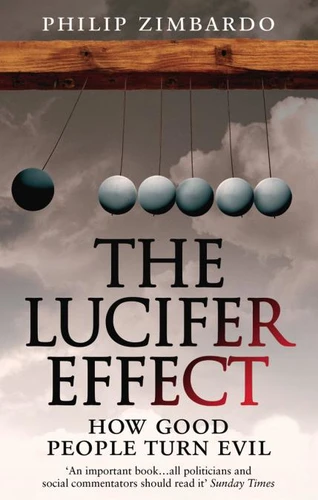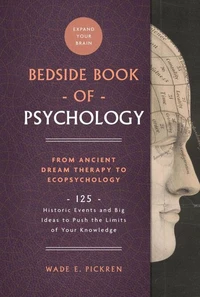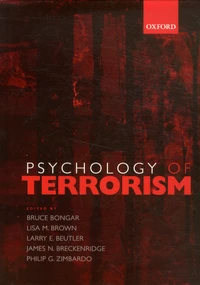The Lucifer Effect
Par :Formats :
Disponible dans votre compte client Decitre ou Furet du Nord dès validation de votre commande. Le format ePub protégé est :
- Compatible avec une lecture sur My Vivlio (smartphone, tablette, ordinateur)
- Compatible avec une lecture sur liseuses Vivlio
- Pour les liseuses autres que Vivlio, vous devez utiliser le logiciel Adobe Digital Edition. Non compatible avec la lecture sur les liseuses Kindle, Remarkable et Sony
- Non compatible avec un achat hors France métropolitaine
 , qui est-ce ?
, qui est-ce ?Notre partenaire de plateforme de lecture numérique où vous retrouverez l'ensemble de vos ebooks gratuitement
Pour en savoir plus sur nos ebooks, consultez notre aide en ligne ici
- Nombre de pages576
- FormatePub
- ISBN978-1-4464-5918-8
- EAN9781446459188
- Date de parution30/04/2011
- Protection num.Adobe DRM
- Infos supplémentairesepub
- ÉditeurEbury Digital
Résumé
In The Lucifer Effect, the award-winning and internationally respected psychologist, Philip Zimbardo, examines how the human mind has the capacity to be infinitely caring or selfish, kind or cruel, creative or destructive. He challenges our conceptions of who we think we are, what we believe we will never do - and how and why almost any of us could be initiated into the ranks of evil doers. At the same time he describes the safeguards we can put in place to prevent ourselves from corrupting - or being corrupted by - others, and what sets some people apart as heroes and heroines, able to resist powerful pressures to go along with the group, and to refuse to be team players when personal integrity is at stake.
Using the first in-depth analysis of his classic Stanford Prison Experiment, and his personal experiences as an expert witness for one of the Abu Ghraib prison guards, Zimbardo's stimulating and provocative book raises fundamental questions about the nature of good and evil, and how each one of us needs to be vigilant to prevent becoming trapped in the 'Lucifer Effect', no matter what kind of character or morality we believe ourselves to have.
The Lucifer Effect won the William James Book Award in 2008.
Using the first in-depth analysis of his classic Stanford Prison Experiment, and his personal experiences as an expert witness for one of the Abu Ghraib prison guards, Zimbardo's stimulating and provocative book raises fundamental questions about the nature of good and evil, and how each one of us needs to be vigilant to prevent becoming trapped in the 'Lucifer Effect', no matter what kind of character or morality we believe ourselves to have.
The Lucifer Effect won the William James Book Award in 2008.
In The Lucifer Effect, the award-winning and internationally respected psychologist, Philip Zimbardo, examines how the human mind has the capacity to be infinitely caring or selfish, kind or cruel, creative or destructive. He challenges our conceptions of who we think we are, what we believe we will never do - and how and why almost any of us could be initiated into the ranks of evil doers. At the same time he describes the safeguards we can put in place to prevent ourselves from corrupting - or being corrupted by - others, and what sets some people apart as heroes and heroines, able to resist powerful pressures to go along with the group, and to refuse to be team players when personal integrity is at stake.
Using the first in-depth analysis of his classic Stanford Prison Experiment, and his personal experiences as an expert witness for one of the Abu Ghraib prison guards, Zimbardo's stimulating and provocative book raises fundamental questions about the nature of good and evil, and how each one of us needs to be vigilant to prevent becoming trapped in the 'Lucifer Effect', no matter what kind of character or morality we believe ourselves to have.
The Lucifer Effect won the William James Book Award in 2008.
Using the first in-depth analysis of his classic Stanford Prison Experiment, and his personal experiences as an expert witness for one of the Abu Ghraib prison guards, Zimbardo's stimulating and provocative book raises fundamental questions about the nature of good and evil, and how each one of us needs to be vigilant to prevent becoming trapped in the 'Lucifer Effect', no matter what kind of character or morality we believe ourselves to have.
The Lucifer Effect won the William James Book Award in 2008.







